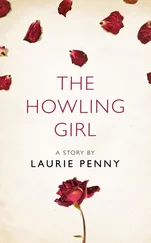But before she left for Pittsburgh, she had one more conversation with Bernice. When she got home from the ruined interview, her mother sat in a rocking chair in her bedroom, her mouth flattened into a line. The graying hands in her lap clasped each other urgently, as soon as Irene said, “Mother, I’m leaving. So we need to talk.”
When the words were out of her mouth, Irene almost wanted to call them back.
“I know about your drinking. I know you drink. It’s not sinus, or an ulcer, or anything like that. You’re drinking too much. And you have been forever.” She sat next to her mother on the ground, in a supplicating pose, took her hand, held it. She wanted to go back to not having said those words out loud in the world, when she could just dream about it and then get through the waking hours as if they were a dream.
“I’m not going to visit you anymore, once I get to Pittsburgh,” said Irene. “Unless you stop drinking. Then I will.”
“I don’t know what you’re talking about,” her mother had said. She was sitting in a rocking chair, and her face was drawn and tight, her mouth suddenly small and pinched. “The doctor recommended I drink a glass of wine a day,” said her mother. “For my health. But I’ll stop. I’ll stop. If you say I have to.”
“That doctor doesn’t know how much you drink.”
“It was a different doctor a long time ago,” said her mother. “I have a heart condition.”
Irene paused. She wished she had never brought it up.
“Mother, I know you pissed your bed this morning, because your liver is failing, because you drink so much gin. You think you are fooling everyone you know, but you’re not.”
“No one knows. It’s none of their business what I do.”
“They know, mother. They can smell it.”
But did they know? No one seemed to know. How did they not know, when she sometimes answered the phone by saying nothing at all?
“It’s odorless,” her mother said. “It doesn’t smell like anything.”
Irene remembered a time when she and her mother had been arguing. Her mother had sunk her fingernails into Irene’s arm, face close enough for spit flecks to fall from her mouth to Irene’s cheek, and had said, “You’re a hateful child. A child of the devil. You’re an ungrateful, hateful devil child.” The cold stones in her mother’s eyes had flashed completely sober, and Irene had found herself, in that moment, impatient for her mother to get that drink inside her, to become tolerable, to fall asleep, to go away.
But now Bernice’s face didn’t move. It stayed taut and she kept staring away from Irene, over Irene’s head.
“You’ll see me in your dreams,” said Bernice. “Like we always have done.”
“No,” Irene said. “I won’t be joining you there either. You must stop drinking, mother. You’re going to die.”
“I don’t even drink that much,” said Bernice. “You’re exaggerating.”
“Mom, I know you’re trying to kill yourself,” Irene had choked out. “I understand that you are.”
“No, I’m not,” Bernice snapped.
“The only sad thing,” said Irene, “is watching it take so long. It’s taking too long, Mom. Killing yourself this way is taking too damn long.”
Irene had gone to Pittsburgh. And her mother lived and lived, and tried to write and call, but there wasn’t enough guilt to bring Irene back: not to the Hinterland and not to Toledo. Then she died, and Irene came. And went back to the Toledo Institute of Astronomy, this time in triumph. It was hard not to connect the dots, and make a constellation: it would be a flame, a twisted, tangled flame. And above the flame would be not a phoenix, not a bird at all, but a girl all alone.
Irene’s phone barked in her pocket. She fished it out and looked at the number.
“Hello?” she said. “Sparks.”
She crossed a two-lane street decorated with hanging baskets of geraniums, and she was standing at the head of the main quad.
“Hello,” said Belion. “Belion.”
“Oh, hi, babe,” said Irene. She looked down the quad at the glistening arcs and spires of the university’s buildings. “I’m in Toledo.”
“Yes, I know,” he said.
“I’m on campus,” said Irene, “Right now.”
“What’s it like?” Belion wanted to know.
“It’s nice,” said Irene. She walked straight down the quad, across the grass and the criss-crossing sidewalk squares. She passed a tall, stately marble building on the left, and on the right a smaller one, capped with a dome and surrounded by a portico. The style of the buildings was Greek revival, because obviously, Pythagoras and everything. Yet the tallest building, the one at the end of the quad, was different. Its roofs more Persian, its spires twisted and eastern, its doorways arched. And at the top, a layered series of rectangles, each one smaller, until on the last was mounted a long dome, the only elliptical observatory in the world.
“I’m coming up there,” said Belion. “I just wanted to let you know.”
“But why are you coming?” Irene asked.
“I’m just coming. I thought I was supposed to come.”
Irene identified Herschel Hall and shoved the map into her laptop bag. She took the phone in her hand.
“You don’t have to, though. What about work?”
“Work?” Belion sounded confused.
“Or the apartment?”
“I’ll sublet it. Craigslist.”
“Well, great. You should come then. Come then.”
“Oh, I am coming.”
“Great, come.”
“And I mean that as a double entendre, where you say one thing and mean not only that thing but an additional thing.”
“I get it.”
“A sexual thing.”
“Right.”
“Let’s just say I’m dying to know what’s behind that door, but I don’t want to have to shrink myself to get through.”
“I’m entering a building, Belion. My reception may become sketchy.”
“What building could be inside that cave, Irene?”
“It’s not a cave, Belion, it’s an internationally renowned school of science and math.”
“I’m coming up there,” said Belion. “And we’re going to straighten out all this funny business.”
“Enjoy,” said Irene. “I left you my mother’s address. That’s where I’m staying.”
“I can find it,” Belion said. “I’ll see you in a while.”
* * *
Irene pushed the END CALL button on her phone. She opened the doorway to Herschel Hall and found the building directory between the gleaming elevators. There was her name, right beside the number 201. So, second floor. Upstairs. There might even be windows.
She stepped into the elevator alone, but once inside she was joined by a tall woman with bare feet and long brown hair. The woman hummed to herself as the elevator rose to the second floor, making no eye contact with Irene. When the car stopped, she drifted out between the opening doors and was gone. Irene got off the elevator and found a steel door marked 201. She swung the door open.
Her new lab was huge. Her heart skipped and jumped. There was a wall of windows but flat slats of metal made up shades that locked out all the light. Irene let the door swing shut behind her, and it clicked tightly. The lab was dim. Granite tables flanked one wall, and her microcollider, brought on a truck from the basement at Carnegie Mellon, sat disassembled in the middle of the room. Once, it was the shiniest thing. Now it almost appeared to have shrunk. On the far wall there was a desk, and on the desk was the only source of light: a laptop. Behind the laptop sat a girl.
“Hello,” said the girl. “So you’re here. Let the party begin.”
The girl’s voice was dry, her inflection sour.
Читать дальше












